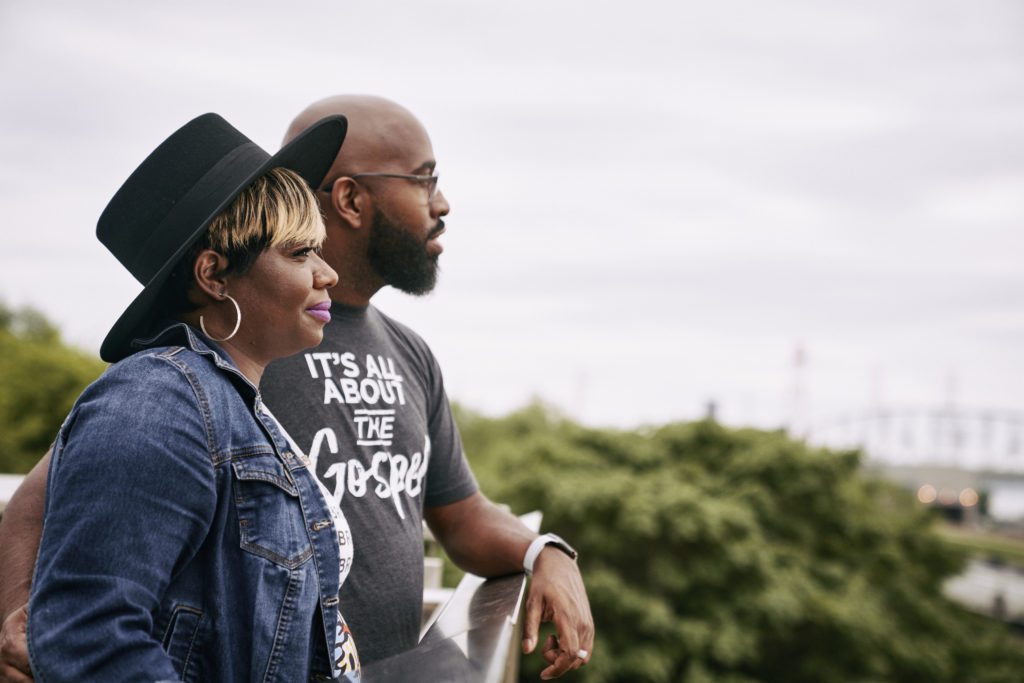I have found much enjoyment these last few weeks in telling my friends, “I’m reading a book about a pastor’s wife who left her husband’s church at 37.” And it was even more fun to say, “Brandt [my husband] gave it to me.”
I’m 32 years old and have been married to a pastor for the last eight years. We’ve served together in three churches as husband and wife, plus a few others in our dating years. We’ve reached an interesting and often fulfilling point in our ministry. We’ve weathered some very real storms. We achieved things we once only dreamed, and we’ve also been discouraged in ways no one told me were coming.
I praise God that my husband handed me The Emotionally Healthy Woman by Geri Scazzero at this point in my life and not five years down the road. I resonated with her story like I’ve never experienced through reading a book. It was the perfect example of a “cautionary tale,” shared with the goal of protecting your own ministry and marriage from some of the troubles she and her husband Pete experienced.
I must confess that I wouldn’t have gone searching for this book on my own. I wouldn’t have identified with its title or its call to “change your life.” Yet, Scazzero’s struggles as a pastor’s wife seeking to raise small children while being a loving and supportive partner to her husband and to be her own kind of leader in their church while meeting needs around her, often felt like words taken right out of my mouth.
This might be the book you didn’t know you needed.
In a world where encouragement comes in the form of memes and song lyrics, Scazzero writes with a voice of hard-won experience. She writes as one who understands the complex questions of serving alongside a community of broken people. She sees a gap within the church culture where we seek to gain knowledge and pursue spiritual growth, yet ignore the development of our own emotional health.
Every church has its own culture. If you haven’t learned this yet, you will when you move from one to another. As the wife of a minister, you quickly realize you can’t simply overlay what’s expected of your spouse, from the ways you engage with the staff to the way you dress. Minister’s wives—and all Christian women—can find ourselves at our emotional and physical ends when we seek to take on what we think are expectations of our culture. Scazzero outlines practical ways to help us ask for clarity from those around us and to seek what God has called and gifted us to do.
Scazzero shapes the book around eight “quits,” such as “Quit being afraid of what others think” and “Quit dying to the wrong things.” At first, the language of “quitting” was jarring, exposing the fact that I adhere or aspire to the culture of hustle and tenacity so prevalent in our Christian circles. But she writes how clarifying this choice can be. Although saying, “I quit” might sound like it’s about leaving something, I actually gained renewed commitment to persevere in the right things.
Scazzero addresses intimate topics that only pertain to you and your husband or family, and she also has incisive things to say about the specific calling God has given each individual woman. Her forthright comments about the difficulties of serving people were liberating. Scazzero acknowledges that there are people who will take advantage of you, who will push your boundaries and leave you emotionally drained. Yet, her drive is not to entreat you to withdraw but for you to determine how to set up your own heart—your very life—in order to serve and minister till the end.
The challenge of personally compelling books is to not lift the applications and conclusions of the author and overlay them on your own life. Scazzero and her family made some choices that I do not believe are the ones my family is being led to make at this time. The reader must go on her own journey and ask the difficult questions using the tools provided, seeking to discern the unique calling that God has for her own life. That’s my prayer for you, and for me, as we learn from Scazzero.
While reading this book, I often thought of C.S. Lewis’ quote, “Friendship is born at that moment when one person says to another, ‘What! You too? I thought I was the only one.’”
I feel that way about Scazzero and am so thankful she shared her journey with me.
Published October 24, 2016



